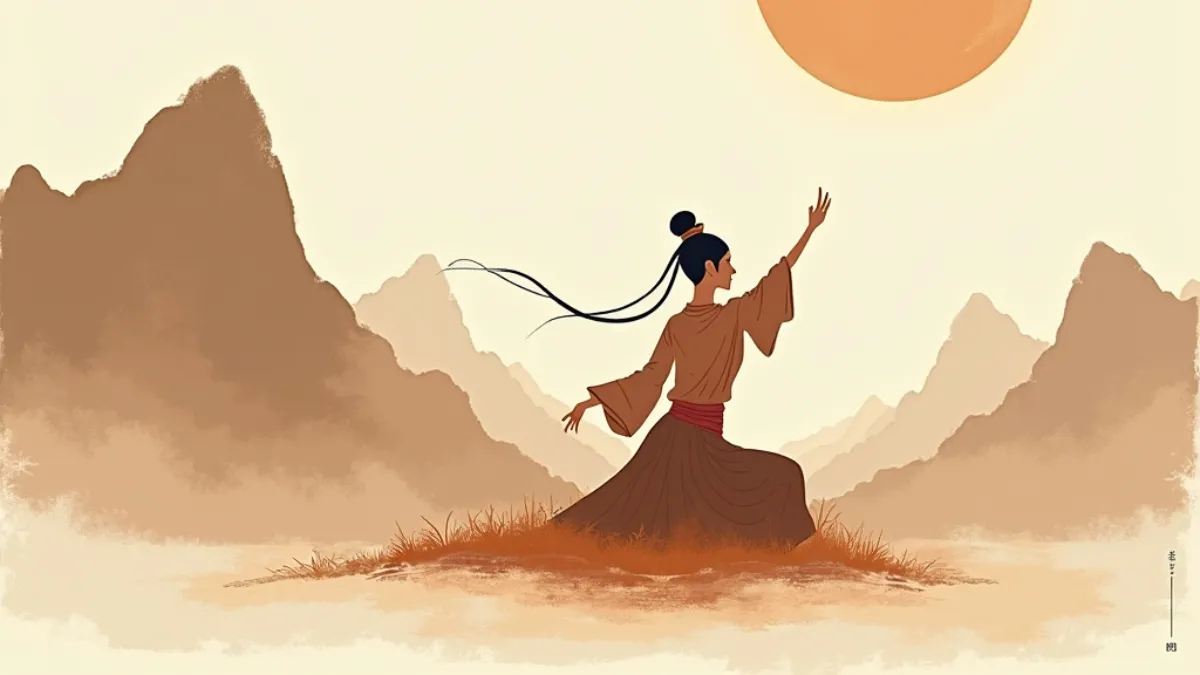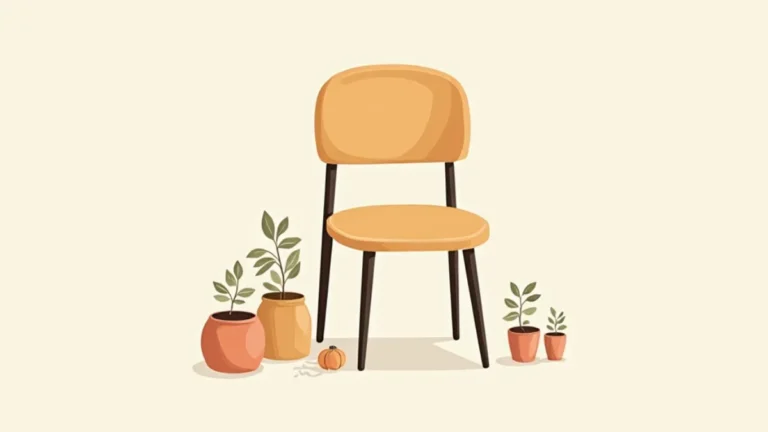Finding Happiness Through Taoist Wisdom
We all want to be happy, right? But in a world that’s constantly urging us to hustle harder, buy bigger, and shine brighter, happiness seems elusive. The endless chase for more – more stuff, more success, more validation – leaves us exhausted rather than content. Here, we’ll explore how Taoist wisdom might offer us a different path to happiness—one that encourages us to let go of society’s demands, embrace simplicity, and learn to be okay with being “useless” by conventional standards.
The Illusion of Material Success
Let’s be honest: we’ve been taught that happiness lies in material success. You get a great job, earn a hefty paycheck, buy a fancy car, and you’re supposed to be happy. Taoist sage Zhuangzi, who lived thousands of years ago, already saw through this illusion. He noticed that people obsessed over things like wealth, status, and luxury—things society celebrated as the keys to a good life. But these pursuits, he argued, were like chasing shadows—no matter how much we acquire, we always want more.
Think about it: how often do we get the latest gadget or achieve a big milestone only to find ourselves itching for the next thing soon after? It’s exhausting, and it’s a trap Zhuangzi warned about. Happiness isn’t a new car or a bigger house; it’s not even that promotion you’ve been working so hard for. Instead, it’s more about stepping off this never-ending treadmill and understanding that our worth isn’t defined by our achievements or what we own.
The Freedom of Uselessness
Here’s a paradox: in Taoism, sometimes being “useless” is actually the most useful thing you can do for yourself. Zhuangzi shares the parable of the “useless tree,” a massive oak that survived simply because nobody found it valuable enough to cut down. This tree was too crooked for furniture, too soft for boats—utterly worthless by practical standards. Yet, its uselessness allowed it to grow, unharmed and at peace.
This story offers us a fresh perspective on what it means to have value. Society tends to glorify productivity and usefulness—”What do you do for a living?” is often our way of measuring someone’s worth. But Taoist wisdom invites us to stop, breathe, and consider: maybe the purpose of life isn’t about constant production or fitting into society’s mold. Maybe it’s about growing in our own way, at our own pace, without being overly concerned with how others might judge us.
Take the story of the elderly hermit Tzu-Kung met along the road. Here was a man living without money, family, or career prospects. By today’s standards, he would have been labeled a failure—yet he was happy, singing while he gathered dropped grain. He found contentment in simplicity, free from the weight of others’ expectations. It’s a powerful reminder that we don’t need to be anything “special” to feel happy.
Challenging Societal Conditioning
Let’s face it—many of us fear being seen as “unambitious” or “irrelevant.” Society has trained us to avoid these labels like the plague. But Zhuangzi encourages us to challenge these deeply ingrained beliefs. He suggests that a lot of the stress and unhappiness in our lives comes from our need to meet other people’s expectations. We’re afraid of being judged, afraid of not measuring up, afraid of being a “nobody.”
Think about how much time and energy we spend chasing success, not because it makes us happy, but because it keeps us in society’s good books. We follow career paths that stress us out, buy things we can’t afford, and make decisions we don’t even believe in—just to be seen as worthy. What would happen if we let that go?
Take a page from Zhuangzi: instead of obsessing over what society thinks, what if we turned our focus inward? What if we learned to measure our happiness not by our job titles, but by how at peace we feel? Imagine allowing yourself to be the “useless tree” for a change—free from constant judgment, just being, without the pressure to perform or prove anything to anyone.
Embracing Fate and Finding Contentment
One of my favorite Taoist stories is that of Pei-kung-tzu and his friend Hsi-men-tzu. Pei-kung-tzu was down on his luck. His friend had everything—wealth, status, success. Pei-kung-tzu, on the other hand, struggled to make ends meet. He felt life was unfair, and his friend even suggested that it was his own fault for not being as virtuous.
But a wise sage intervened, pointing out that life isn’t just about how hard we work or how virtuous we are—sometimes it’s just luck. Some people get dealt a good hand; others don’t. It’s not always within our control, and that’s okay. When Pei-kung-tzu accepted this, he found peace. He no longer viewed his circumstances as a reflection of his worth. He chose contentment over comparison, peace over resentment.
This story has such a powerful message: we can’t always control what happens in our lives, but we can control how we respond. Contentment comes from accepting our fate without attaching our self-worth to what we achieve or accumulate. Whether we’re rich or poor, successful or not, our happiness can be independent of our external circumstances if we cultivate the right attitude.
Letting Go and Living Simply
So, what does all this mean for you and me, living in a world that still glorifies hustle culture and the pursuit of more? It means rethinking what success looks like. Maybe it’s not a six-figure income or an impressive job title. Maybe it’s having the time to enjoy a quiet afternoon, to go for a walk without feeling guilty, to have a moment of silence without feeling like you should be doing something “productive.”
Taoist wisdom reminds us that we don’t need to be in a constant state of “achieving.” We don’t need to play society’s game if it’s not making us happy. Instead, we can embrace our own version of “uselessness,” shed our attachments, and find joy in just being alive.
FAQs
What is Taoism’s view on happiness?
Taoism suggests that happiness isn’t something we achieve by acquiring more things or impressing others. Instead, it’s about finding harmony within ourselves and letting go of societal pressures.
Why does Taoism value being ‘useless’?
Being “useless” allows us to grow without the burden of other people’s expectations. It’s about embracing who we are without trying to fit into someone else’s definition of success.
How can I apply Taoist principles in daily life?
Start by questioning your own beliefs about success. Do you really need everything you’re chasing? Practice letting go of attachments—try being content with what you have, without always striving for more.
Final Thoughts
At the end of the day, Taoist wisdom teaches us that happiness comes from letting go. Letting go of the pursuit of more, letting go of societal expectations, and letting go of the idea that our worth is tied to our productivity. It’s about finding joy in simplicity, embracing our own form of “uselessness,” and being at peace with what is.
Life’s too short to spend it chasing things that don’t bring true happiness. Maybe the best thing we can do for ourselves is to slow down, step back, and, like the old hermit, find the beauty in just being here—alive, in this moment, with no one to impress and nowhere we have to be.



